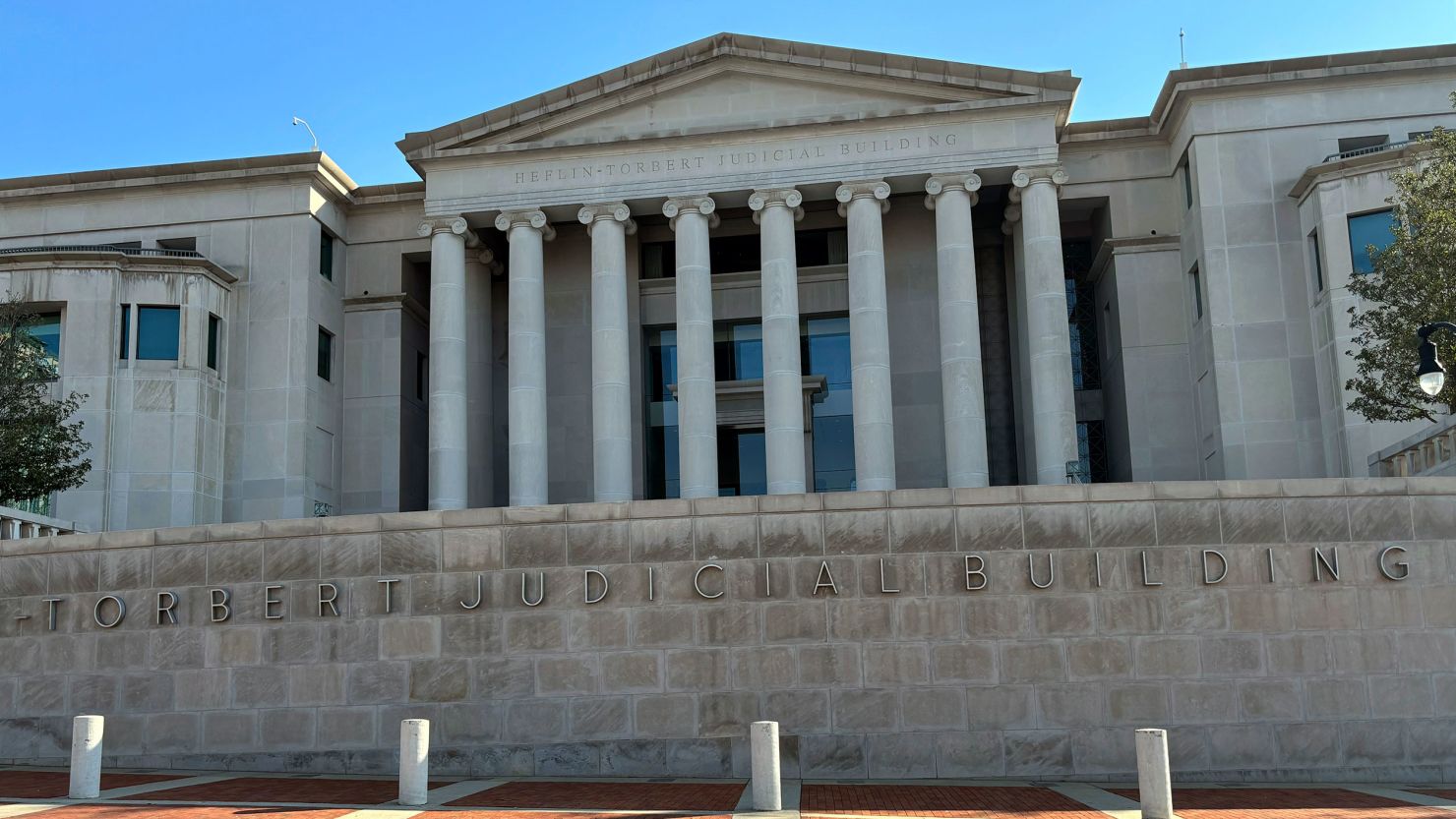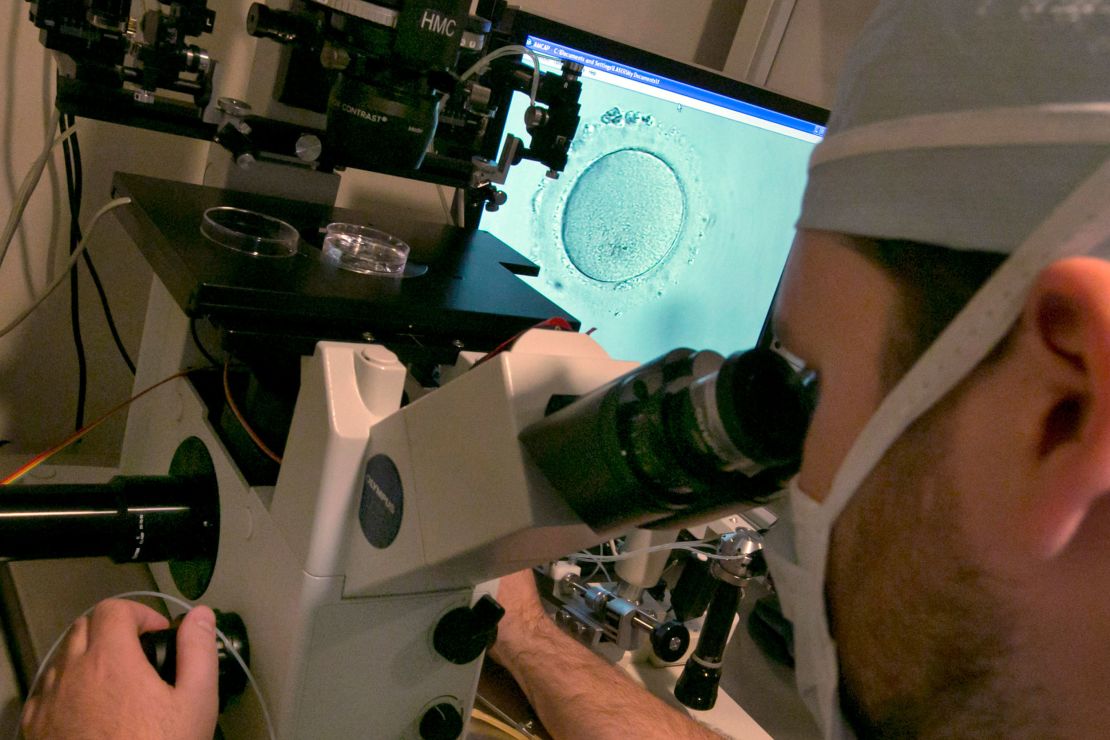
In Short
- The alabama supreme court’s recent ruling classifying frozen embryos as human beings has sent shockwaves through the state’s reproductive industry.
- Ivf practitioners are facing uncertainty and legal risks, prompting legislators to rush to pass laws protecting fertility services.
- The decision has sparked nationwide debate and raised questions about the future of reproductive rights legislation.
TFD – Dive into the upheaval caused by the Alabama Supreme Court’s verdict on frozen embryos, plunging the state’s reproductive industry into turmoil. From legislative battles to concerns over legal repercussions, discover the complexities surrounding fertility services and the quest to safeguard reproductive rights in Alabama.
The state’s reproductive business is in disarray after the Alabama Supreme Court decided this month that frozen embryos are human beings and that people who destroy them may be held accountable for wrongful death.
Proponents of in vitro fertilization are scheduled to demonstrate on Wednesday in front of the Montgomery statehouse. Legislators are working feverishly to pass laws that would protect IVF practitioners from prosecution. One such bill, supported by Republicans, is slated for a hearing in the state’s House Health Committee on Wednesday afternoon.
Following the court’s decision, at least three Alabama providers—including the biggest health institution in the state—have stopped offering some in vitro fertilization treatments.
Many more families are struggling with unresolved concerns about how to proceed with planned IVF treatment and what to do with already-existing embryos. Some families have decided to go to other states for fertility services.
Although Alabama’s Republican Attorney General Steve Marshall has stated that his office will not prosecute families or IVF providers based on the state court’s ruling, a legislator has voiced fear that other law enforcement agencies may.
The state Supreme Court’s decision has left Alabama providers fearful and uneasy in the absence of clear direction from any state or medical authority, Katie O’Connor, director of federal abortion policy at the nonprofit National Women’s Law Center, told CNN.
“The question of whether criminal laws could be applied is something that the Supreme Court of Alabama did not address, but is still a concern for those who wish to perform in vitro fertilization,” O’Conner stated. “That is definitely a possibility, and I believe many providers are reluctant to assume that risk.”
Lawmakers strive to safeguard access to IVF.
Alabama House Bill 225, presented by Democratic House Minority Leader Anthony Daniels on Thursday, would specify that “any fertilized human egg or human embryo that exists outside of a human uterus is not considered an unborn child or human being for any purposes under state law.”
If the legislation is adopted by both chambers and signed into law, it will take effect right away. According to Daniels, who spoke to CNN, the bill might be on the House floor as early as Wednesday and make it to Governor Kay Ivey’s desk as early as March 5.
On Tuesday, Daniels also proposed House Bill 240, which would clarify that an extrauterine embryo is not an unborn child in a section of the state constitution that protects the rights of unborn children.
Two bills that would “provide civil and criminal immunity to persons providing goods and services related to in vitro fertilization except acts of omission that are intentional and not arising from or related to IVF services” were also introduced by Alabama Republicans on Tuesday in the state House and Senate.
Senate Bill 159, submitted by Republican Tim Melson, is pending the Senate Healthcare Committee. House Bill 237, sponsored by Republican Terri Collins, is scheduled to be considered in the House Health Committee on Wednesday afternoon.
There is a Republican majority in the Alabama Senate and House.
“The Alabama Supreme Court will ultimately interpret any legislation that is passed,” O’Conner stated. “While I’m happy to see lawmakers considering it, I believe the Supreme Court has made it extremely difficult to overturn this decision.”
In a nationwide announcement made at a press conference on Tuesday, Democratic Senator Tammy Duckworth stated that on Wednesday, the Senate will take up the Access to Family Building Act, which seeks to safeguard IVF access and prevent providers from legal repercussions for offering IVF treatments.
Using the state’s abortion restriction as justification, Daniels claimed that the Alabama legislature has been working for years to restrict women’s access to abortion.
According to system spokesperson Savannah Koplon, “unless and until it reconsiders its opinion, or the Alabama Legislature addresses it through legislation,” the University of Alabama at Birmingham health system, which is the largest in the state, must abide by the court’s decision, CNN reported on Tuesday.

Another provider that suspended some IVF procedures following the decision, Alabama Fertility Specialists, released a video on Facebook on Sunday. It said that its staff was aware of legislation that would “save IVF in Alabama” and encouraged people to attend an event on Wednesday that was organized with advocacy groups “in massive numbers” to show support for IVF services.
Dr. Janet McLaren Bouknight of Alabama Fertility Specialists told CNN on Tuesday that “at this point, we’re in a position where the only thing we can do is advise us all to hold and ask our leaders in this state to create the protections that we need to pick back up our treatment.”
Many providers are powerless until new laws or policies are put in place in Alabama, Katherine Kraschel, an assistant professor at Northeastern University School of Law, told CNN. According to Kraschel, “the only thing we can say for sure is that (providers) have exorbitantly more civil liability than they did before this case.” “The remainder is a huge, uncharted void of liability.”
Decisions affect the entire country.
According to experts, the Alabama verdict is unlikely to be reviewed by the US Supreme Court because it does not interpret federal law or the US Constitution.
However, as some families move from Alabama to other states—like Texas—in order to receive IVF services, legislators across are being questioned about whether or not they will take steps to safeguard IVF access within their own jurisdictions.
Texas Governor Greg Abbott expressed support for in vitro fertilization (IVF) on Sunday, but he refrained from advocating for legislation to safeguard access to IVF in Texas.
“I think a lot of people agree with the remark that (Former) President Trump made on this, and that is something that we all kind of want to achieve. Abbott stated on CNN’s “State of the Union” on Sunday that “we want to make it easier for people to be able to have babies, not… make it harder.”
Abbott stated that he believed Texas will eventually address the matter and that he wanted to maintain Texas as a “pro-life state” in response to a question about whether he intended to push the Texas legislature to enact laws to make IVF legal.

Legislators in Florida and other states are debating personhood laws that, according to experts, may have an effect on IVF services akin to what happened following Alabama’s Supreme Court decision. “There really is a question about whether criminal laws would apply to doctors who perform IVF services once you open the Pandora’s box to personhood,” O’Connor stated.
A Florida bill that would have expanded culpability for wrongful death cases involving unborn children and defined a fetus as a “unborn child” was scheduled to go to a vote on Monday, but it has now halted due to the aftermath from the Alabama court verdict.
According to the Tampa Bay Times, Republican state senator from Florida Erin Grall asked for a postponement of the vote.
In the meantime, states that have already implemented limited reproductive care legislation are being actively monitored by experts. According to O’Conner, “I think you can expect the same states that have created sort of abortion deserts to be the ones that will make access to IVF more difficult, if not impossible.”
Kraschel stated that laws pertaining to personhood might have broad effects, noting issues like what happens to a couple’s embryos in the event of a divorce. As states begin to regard fetuses and embryos more like individuals, “all these personhood issues have broad sweeping implications,” the speaker stated.
The central case of it all
The Alabama decision is the result of two cases brought by three couples who chose to freeze the remaining embryos after undergoing IVF treatment to conceive.
The parents filed a lawsuit, alleging wrongful death, after alleging that many frozen embryos were thrown on the floor and destroyed in 2020 at an Alabama reproductive clinic.
The allegations were originally dismissed by a trial court, but the state Supreme Court overturned that judgment. One of the clinics that has stopped offering IVF services is The Center for Reproductive Medicine in Mobile, which is the subject of the complaint.
The parents were “devastated” by the death of their embryo and merely wanted a method to be able to hold the IVF clinic accountable, according to Trip Smalley, an attorney for one of the couples involved in the case, who previously told CNN. He further stated that lawmakers should address any policy concerns that may emerge from the decision.
According to Smalley, the parties would be getting ready for the trial and the matter would be remanded to a lower state court.
Conclusion
The Alabama Supreme Court’s decision has not only disrupted the state’s reproductive industry but also ignited a national conversation about reproductive rights and legal implications. As legislators scramble to address the fallout, the outcome of ongoing debates will shape the future of fertility services in Alabama and beyond. Amidst uncertainty, one thing remains clear: the need to protect individuals’
Connect with us for the Latest, Current, and Breaking News news updates and videos from thefoxdaily.com. The most recent news in the United States, around the world , in business, opinion, technology, politics, and sports, follow Thefoxdaily on X, Facebook, and Instagram .
